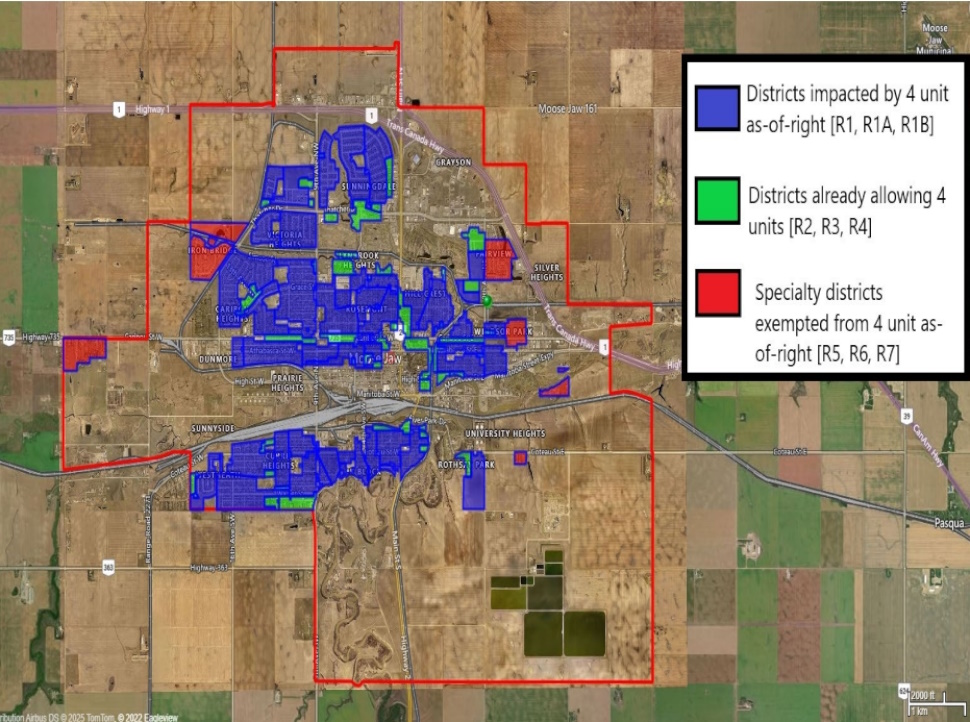A zoning bylaw amendment to allow four-unit dwellings in low-density neighbourhoods passed all three readings by city council on Monday night.
The change makes the City of Moose Jaw eligible to apply for funding through the federal Canada Housing Infrastructure Fund (CHIF).
The bylaw amendment hasn't come without controversy. Through social media and at the April 28 city council meeting, residents voiced their opposition. Some concerns included changing the demographics of neighbourhoods, potential impacts on property values, lack of communication, and the aesthetics of four-unit buildings in established areas.
"We have the task of trying to make up for, let’s say, a lack of judgement over the decades on what should have been deemed priorities and focused on. Now, regrettably, we’re the council that has to make these decisions and if it doesn’t start now, I don’t know when it will," said Mayor James Murdock.
The CHIF program requires municipalities with a population of 30,000 or more to allow up to four-unit dwellings as-of-right, meaning without public hearings or council approval prior to development.
Coun. Patrick Boyle said he disagrees with how the federal government imposed the requirement on municipalities.
"We would be missing out on five applications, I think, totalling a couple hundred million dollars of infrastructure work that we need done in the City of Moose Jaw. That is solely because the federal government is forcing us to put this bylaw in," Boyle said.
"So, I’m not in favour in principle, but I don’t believe there are any other options because we are left fighting for table scraps that the federal government has left us."
Boyle added that, if the funding applications aren’t approved, city council can always revisit the zoning bylaw and revert it back.
The bylaw permits four-unit and smaller dwellings as-of-right in the R1, R1A and R1B low-density residential zoning districts. The buildings will still be subject to requirements such as minimum lot size, parking, and other regulations, but the approval process will be more streamlined.
"So, there are things in place in the zoning bylaw that will continue to be there to ensure that if — and the big word is ‘if’ — a developer or a builder or a private property owner wants to build a four-unit property on a piece of property, that it fits in with the characteristics of the neighbourhood," said Coun. Chris Warren.
Four-unit dwellings are already permitted in several areas in Moose Jaw under the current bylaw. The amendment expands that to allow new developments in traditionally low-density areas. A zoning map can be found on the City of Moose Jaw website for residents to verify if their property falls within these districts.
According to the city, the amendment is necessary to comply with federal policy and unlock funding opportunities. As part of its CHIF application, the city has requested $26.56 million for the Crescent View Headworks Facility Replacement Project — a major infrastructure upgrade needed to support future growth and improve Moose Jaw’s water and sewer systems.
